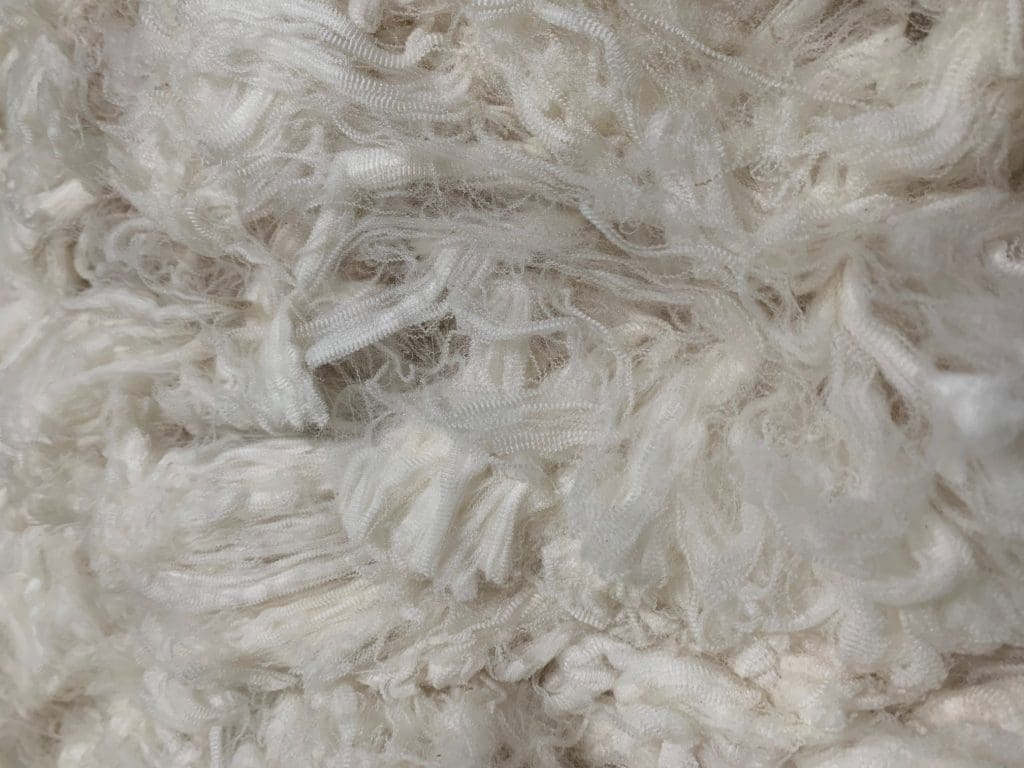
MULESING is the major impediment to effective promotion of Australia’s superfine Merino wool clip, according to a group of concerned growers.
Australian Superfine Wool Growers Association member and New South Wales wool grower Dan Calvert believes a “mules-free” organisation would be better positioned to grow and fund fibre promotion and enhance growers’ returns.
He has distributed a letter to ASWGA members proposing that they be allowed to vote on becoming “a non-mulesed organisation.”
Mr Calvert is one of three members of the Australian Superfine Wool Growers Association proposing a change to the body’s constitution to make non-mulesed wool production a membership condition. The second member of the group is Charles Coventry and the third has not been identified by Sheep Central.
ASWGA constitutional changes require the approval of 75 percent of financial members to be successful. Mr Calvert said if the proposal was voted on and approved, it would essentially mean superfine growers who mulesed their sheep could not be ASWGA members.
 “I believe it is a sensible way forward for the organisation and I believe it will give the association an opportunity to get more members and thus be able to fund a bit more promotion of the fibre.”
“I believe it is a sensible way forward for the organisation and I believe it will give the association an opportunity to get more members and thus be able to fund a bit more promotion of the fibre.”
ASWGA president Mark Waters has been visiting members nationally in the lead up to the body’s 2023 annual general meeting in Melbourne on 28 July; however, a vote on the issue is not expected at the AGM.
Mr Calvert said Mr Waters is canvassing ASWGA council members on the possibility of having a constitutional vote on the issue.
Mr Calvert told Sheep Central it is very hard for ASWGA officers to effectively promote the organisation because of mulesing.
“So we think if it (ASWGA) was an ‘unmulesed’ organisation we might be able to more effectively promote the organisation.
Mr Calvert said one of the aims of ASWGA in its constitution is: to advance and promote superfine wool as a prestige fibre by increasing collaboration and understanding between growers, processors and users, and by any other means deemed desirable by the members.
“Mulesing is a bit of a contravention of that because it sort of downgrades the image of the fibre, especially if animal rights activists put up images on billboards and in social media,” he said.
“People who see that don’t have any context around that; they don’t know and they don’t care whether the animal received pain relief or that it helps prevent flystrike.
“So you’ve lost the argument (that wool is a prestige fibre).”
Mr Calvert said Paolo Zegna, director of the Italian luxury fashion house Ermenegildo Zegna Group, during the recent ASWGA annual awards dinner and farm tour, made it very clear he would like to see ASWGA as a non-mulesed organisation.
Perception of Australian wool had to be improved – Coventry
NSW superfine wool grower Charles Coventry is the managing director of Achill Station Pty Ltd, a sheep and cattle property near Armidale run as a joint venture with the Zegna Group.
Mr Coventry said his views on the ASWGA mulesing were his own and not those of Zegna.
“However, it has become such an important and dominant issue and has been going on for so long, that there needs to be the opportunity for those that are non-mulesed, that represent a higher standard in animal welfare, to not be dragged down by those that choose to (mules).”
On the possibility that an ASWGA vote on mulesing might lead to the formation of a separate organisation, he said the industry needed to aggregate rather than divide its industry associations as much as possible.
Mr Coventry supports Mr Calvert’s comments in his letter and had previously written to the association about 2.5 years ago asking that the association consider becoming a non-mulesed organisation.
“Dan and I and one other, we are all aligned in our desire.”
Mr Coventry said the majority of ASWGA members were already not mulesing their sheep, but some non-mulesing members did not want to separate from mulesing ASWGA members because of history and friendships.
“I think there is also an element of fear in here; when it is raised at meetings, it is not uncommon for no-one to speak up on the preference to become non-mulesed.”
Mr Coventry said it is often difficult to have a rational debate on the issue, because of the staunch defense of mulesing by some people in the past. He said there is a concentration of Merino breeders who defend mulesing.
“The irony is that a lot of people who have stopped mulesing still buy rams from mulesed operations and in that 50:50 combination, they don’t seem to have any trouble creating a mules-free lamb.”
“To me it seems unreasonable for a mulesed grower — now that there are more prominent premiums for non-mulesed wool frequently available – to drag down the image of those who choose not to mules, but they still expect them to stand alongside them,” he said.
“I don’t think that’s reasonable.
“In reverse… the non-mulesers are not causing any degradation of the market for the people who mules,” Mr Coventry said.
Mr Coventry said the perception of Australian wool had to be improved.
“We are the best in the world in animal welfare, but we are deemed by the market to be the worst because of this elephant in the room (mulesing).
He said whether to mules or not had to be each farmer’s choice, but the world perceived the Australian industry as “one bucket of mulesed growers” and at the moment there is no association that stands behind a higher standard of animal welfare, ie. not mulesing.
“There just has to be something — in this case we’re proposing it is a growers’ association – that stands by a higher standard of animal welfare.”



At last some realism and positive thinking on the counter-productive and cruel practice of mulesing.
This could be a turning point for wool’s future on international markets.
I totally agree, realism and positive thinking.
If only the consumers could smell fly strikes and the smell of death . I wonder how the pro-flystrike people would spin that?